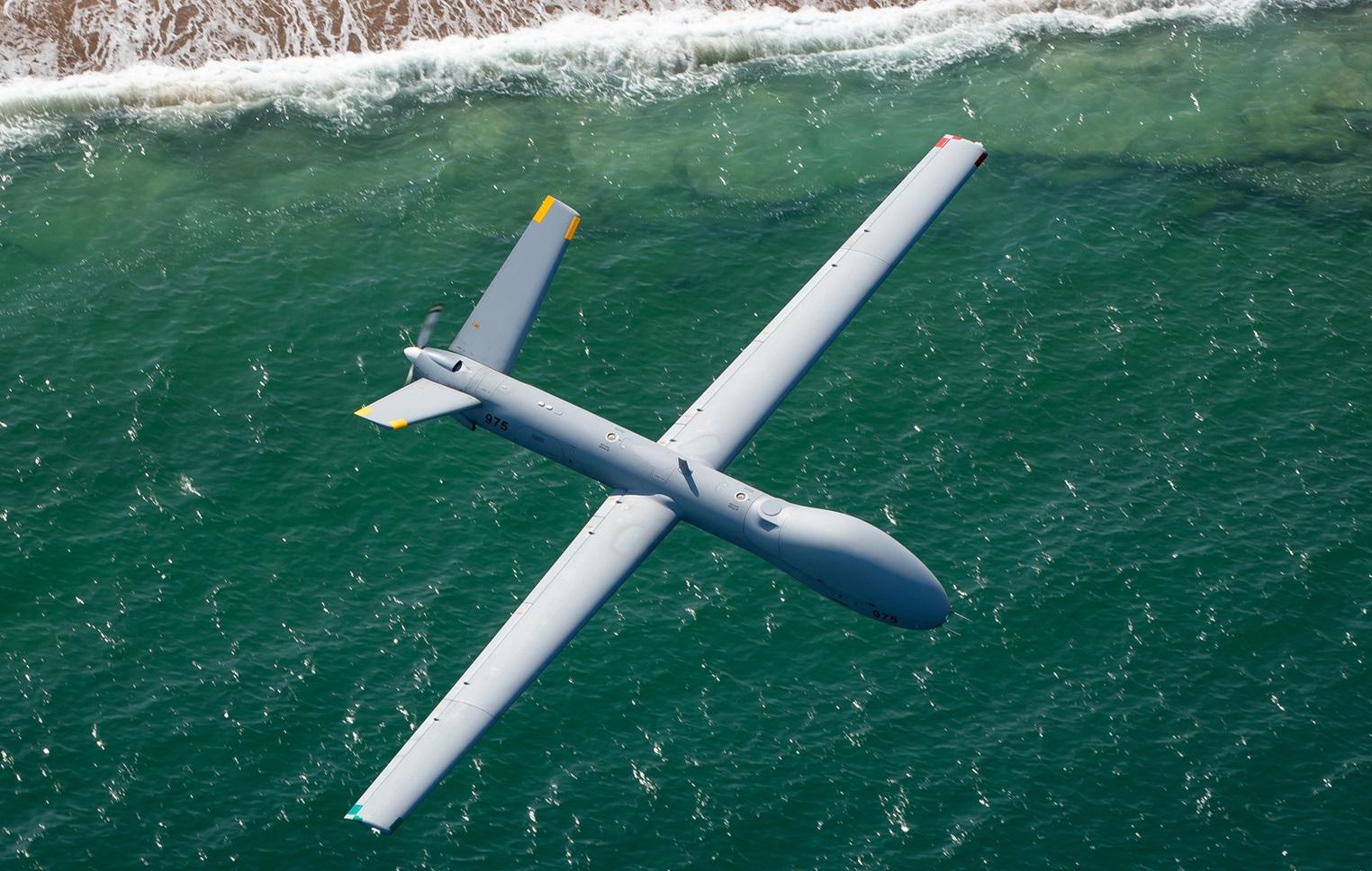Thailand has signed a contract to buy Hermes 900 “unmanned aerial vehicles” (UAV) from an Israeli defence company, according to an announcement by the Royal Thai Navy (RTN). The pilotless aircraft will patrol Thailand’s seas to protect the sovereignty of Thailand’s waters and shipping routes. The drones will also assist in sea rescue missions. The Hermes 900 drones will help to prevent and suppress illegal activities out at sea, said the navy. The UAVs are complete with a weapon system which can accurately “attack targets. The purchase will cost 4 billion baht ($US107,003,360).
Commander-in-Chief of the Royal Thai Navy Admiral Somprasong Nilsamai signed the contract with the Director of Business Development and Marketing of Elbit Systems Ltd. Nissim Assaf Cohen. In 2017, the Royal Thai Army purchased Hermes 450 UAVs – the previous model of the same aircraft – from the same company, Elbit Systems Ltd. The Royal Thai Army has taken delivery of four Hermes 450 Unmanned Aerial Vehicles, The UAVs are operated by the 21st Aviation Battalion at the Army Aviation Centre at Lopburi. It has an endurance of over 20 hours, with a primary mission of reconnaissance, surveillance and communications relay.

The Elbit Systems Hermes 900 Kochav (“Star”) is an Israeli medium-size, multi-payload, medium-altitude long-endurance unmanned aerial vehicle (UAV) designed for tactical missions. It is a successor to the Hermes 450 series of drones, one of the most widely used military drones in the world. It has an endurance of over 30 hours and can fly at a maximum altitude of 30,000 feet (9,100 m), with a primary mission of reconnaissance, surveillance and communications relay. The Hermes 900 has a wingspan of 15 m (49 ft) and weighs 970 kg (2,140 lb), with a payload capability of 300 kg (660 lb).
Elbit System’s Hermes 900 UAS is equipped with a variety of high performance sensors, allowing it to detect ground or maritime targets, over a wide spectral range. The Hermes 900 uses built-in satellite communication channel providing beyond-line-of-sight link to the universal command & control ground station (UGCS), enabling the aircraft to operate at long distances and descend to lower altitude even inmountainous terrain. The autonomous system is also supported with advanced mission management, automatic taxiing, autonomous flight and automatic takeoff and landing systems common to all the UAVs and in the Hermes family.















